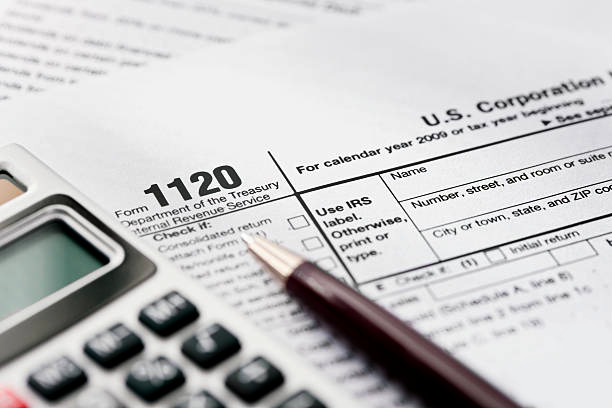Many Georgia community associations, including HOAs and condominium associations, mistakenly believe they’re fully tax-exempt. Although established as nonprofit corporations, most still have the obligation to file tax returns. This article breaks down what associations need to know to stay compliant and financially protected.
Key Takeaways
- HOAs are non‑profit corporations, but most do not qualify as tax‑exempt; IRS criteria still apply.
- Associations may file Form 1120 or 1120‑H each year – the choice affects tax liability, and a qualified CPA can help your board make the best choice.
- Common areas not transferred to the Association may be set at fair market value taxation instead of nominal taxation.
- Early documentation and expert guidance = fewer surprises at audit time.
Understanding HOA Tax Status in Georgia
One of the most common misconceptions about homeowners associations (HOAs) is that they are tax-exempt organizations. While it’s true that community associations in Georgia, including condominium associations and HOAs, are incorporated as non-profits, they still face unique tax obligations that can sometimes be overlooked. This misunderstanding around tax-exempt status can lead to unexpected tax penalties and liabilities.
Income Tax Requirements for Georgia HOAs
Proper financial planning requires an understanding of the income tax requirements for community associations. Many homeowners’ associations mistakenly assume they are exempt from federal and Georgia income tax, but this is not the case. Being aware of your association’s obligations enables effective planning and avoids potential tax pitfalls.
The Internal Revenue Service (IRS) offers two primary filing options for community associations: the standard U.S. Corporation Income Tax Return (Form 1120) and the Homeowners Association Tax Election (Form 1120-H). Each option has its advantages and disadvantages, and understanding these can help you make an informed decision that benefits your association, and your CPA can advise you on which option is best.
Why Non-Profit Status Doesn’t Equal Tax Exemption
A common belief among many community associations is that their non-profit status automatically grants them tax-exempt status. However, for an organization to be entirely tax-exempt, it must meet specific IRS requirements, such as promoting social welfare for the general public, and apply for and receive tax-exempt status. Most community associations benefit only their residents, not the broader community, making them ineligible to qualify for tax-exempt status, including those classified under section 501(c)(7).
As a result, homeowners associations can have taxable income even with their non-profit status. Sources such as interest, rental fees, or other non-exempt income must be reported and taxed accordingly.
Two Filing Options for HOAs Under IRS Rules
Community associations have two IRS filing options: Form 1120 and Form 1120-H. Form 1120 is the standard corporate return, where taxes are paid on all income, including that from member operations. One significant advantage of this form is the ability to carry forward losses year to year, which can be beneficial for associations with fluctuating income.
Alternatively, Form 1120-H treats the association as a homeowners association under IRC §528. Under this form:
- Only non-exempt function income, such as interest or rental fees, is taxable.
- Exempt function income, including assessments, dues, and any gain from member operations, is not taxed.
- Losses cannot be carried forward.
Strategic Tax Filing for Community Associations
Community associations have the flexibility to switch between filing methods annually, choosing the option that best suits their financial situation each taxable year. This strategic decision can significantly impact the association’s tax liabilities and overall financial health.
Additionally, maintaining proper documentation and record-keeping is essential for making informed filing decisions and ensuring Internal Revenue Service (IRS) compliance. Regularly reviewing your association’s financial statements and consulting with a CPA and other qualified tax professionals can help optimize your association’s tax planning strategy.
Georgia Property Tax Obligations for HOAs
In addition to income taxes, homeowner associations in Georgia that own any real property are also subject to county property taxes. Homeowners associations typically have property tax obligations, albeit nominal in most counties, for the common areas they own. Accurate budgeting and financial planning require understanding these obligations.
Most property owners are required to pay property taxes based on the fair market value of their properties, as determined by local tax assessors. However, many counties in Georgia, especially in the metro-Atlanta area, assess property owned by HOAs at a nominal rate because the property is burdened by the members’ easements and restrictive covenants. This includes common areas such as parks, recreational facilities, and green spaces, which are essential to the community.
General Rule: Most Community Associations Pay Property Taxes
According to OCGA §48-5-6, all property must be assessed at its fair market value. Fair market value in Georgia is defined as “the amount a knowledgeable buyer would pay for the property and a willing seller would accept for the property…”. Most community associations must comply with these property tax laws unless specifically exempted.
While homeowners associations generally receive lower property tax bills due to the nominal fair market value of common areas, they are still responsible for paying these taxes. Proper financial management of the association depends on understanding and complying with these requirements.
Special Tax Considerations for Common Area Properties
Common area properties present unique challenges regarding property tax assessments. Initially, amenities are assessed under developer ownership at their full fair market value. However, once these properties are deeded to the association, their market value can significantly decrease due to easements, deed restrictions, and enforced covenants.
In the case that the property no longer has fair market value, it still adds value to the lots in the community, though. That value is usually reflected in the assessed value of each individual lot. When this happens, the common areas should only be taxed at a minimal amount. If they are still being taxed at full value, it may result in double taxation, and the association should consider filing an appeal.
Avoiding Double Taxation in Georgia
Double taxation occurs when the value of common areas is not properly allocated among individual lots, resulting in the association paying taxes on these properties in addition to the taxes paid by homeowners. Preventing this requires assigning only a nominal tax value to common areas.
Metro-Atlanta tax assessors generally recognize this principle, but improper valuations can still occur. Associations should be prepared to appeal a valuation that is not nominal.
Need to File a Tax Appeal?
Tax Obligation Best Practices for HOA Boards
Effective management of tax obligations requires a clear understanding of an association’s tax-exempt status and adherence to best practices. Associations can stay compliant and financially healthy by implementing such best practices as strategic income tax planning, proactive property tax management, and transparent communication within the board and with property owner members to ensure everybody understands tax obligations.
Income Tax Planning for HOAs
Income tax planning begins with:
- Keeping detailed records of all income sources.
- Distinguishing between exempt function income and non-exempt function income.
- Regularly reviewing tax law changes.
- Planning for potential liabilities in annual budgets to optimize your association’s tax strategy.
- Considering both IRS filing options with the association’s CPA during tax planning to determine which is more beneficial.
Utilizing tax-exempt financing options can further minimize tax liabilities. HOA boards should also consult with qualified tax professionals to ensure compliance and to avoid costly filing errors.
HOA Property Tax Management
Understanding your county’s property assessment practices and knowing when and how to appeal excessive valuations are crucial to ensuring that your HOA’s property taxes are properly set at a nominal rate.
Ensuring fair and accurate property assessments involves:
- Monitoring the assessed value annually
- Demonstrating that the property is a common area by providing the recorded declaration of covenants and the recorded plat
- Being aware of any double taxation
Need Help with HOA Tax Appeals or Property Tax Issues?
If your association has questions about where to turn for help filing tax returns or is facing high or unfair property tax assessments, NowackHoward is here to help. Our attorneys are trusted advisors to community associations across Metro Atlanta and the entire state of Georgia, providing unmatched legal guidance backed by decades of experience.
In every case, we work closely with boards and their community managers to develop strategies that reflect the unique goals and challenges of their respective communities. Ready to help ensure your association is meeting its tax obligations or stop paying unfair property taxes? Talk to a NowackHoward team member about your filing or appeal options. Call 1-770-863-8900 or click Contact Us in the upper-right of the screen.
Frequently Asked Questions – FAQs
Are homeowners associations tax-exempt organizations?
Most homeowners associations (HOAs) are not tax-exempt; despite being established as non-profit corporations, they have specific tax obligations, including income taxes and county property taxes.
What are the two IRS filing options for community associations?
Community associations have two IRS filing options: they can choose to file Form 1120, which is the Standard Corporate Return, or Form 1120-H, specifically designed for homeowners associations. Selecting the appropriate form can significantly influence the tax obligations of the association.
Why is it important to distinguish between exempt and non-exempt income?
It is crucial to distinguish between exempt and non-exempt function income, as this differentiation ensures accurate reporting of taxable income and helps optimize your tax strategy. Understanding these categories allows for better financial planning and compliance.
Exempt function income refers to income received by homeowners associations that is exempt from taxation and generally includes membership assessments, dues, and fees paid by the owner-members of residential units or lots, as well as interest, fines, and late fees received from members for violations or late payment of assessments, dues, and other fees. Conversely, non-exempt function income includes the other money received by associations during the year, including payments from non-members and interest earned on checking and savings accounts.
How can associations avoid double taxation on common area properties?
Homeowners associations can avoid double taxation on common area properties by ensuring the property is titled in the association’s name and set at a nominal rate and appealing any improper valuations. This will help in achieving a fair tax assessment for all members.
When should an association seek professional help with tax matters?
Community associations should seek professional help with tax matters when facing complex issues such as property valuation disputes, selecting the best tax filing strategy, appealing property tax assessments, or ensuring compliance with Internal Revenue Service (IRS) regulations. Engaging an expert can provide the necessary guidance to navigate these challenges effectively.
When is the deadline for an HOA to elect and file its income tax return?
Homeowners associations have the unique option to file a Form 1120 or a Form 1120-H each year.
For associations operating on a calendar year, the deadline to file both Form 1120 and Form 1120-H is the 15th day of the 4th month after the end of the HOA’s tax year, which is typically is April 15th. However, an association with a fiscal year ending June 30th must file the Forms by the 15th day of the 3rd month after the end of its tax year. If the due date falls on a Saturday, Sunday, or legal holiday, the association may file on the next business day.
Can an HOA switch back to Form 1120 after filing Form 1120-H?
Yes – HOAs may choose either form each year, allowing strategic toggling based on surplus or losses. Associations should always consult their CPA regarding which form is best for their HOA.


